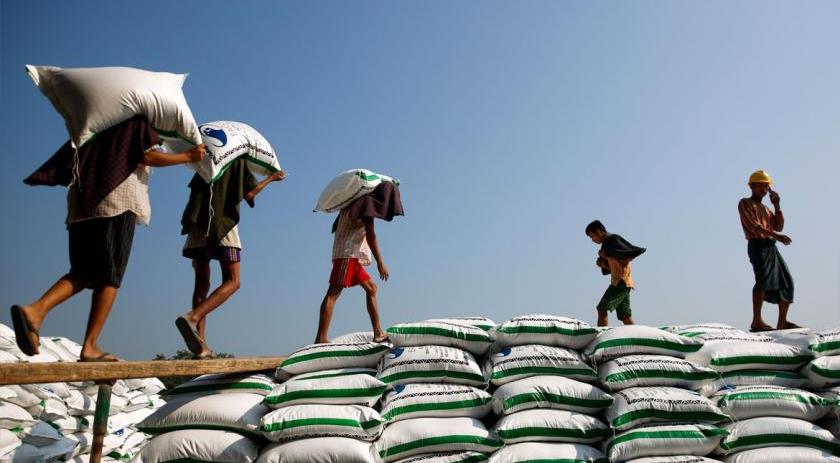
The European Union will reinstate tariffs on Myanmar rice imports this week, the European Commission announced today.
EU investigations found that Myanmar’s Indica rice is causing economic damage to European producers and the custom duties will protect producers in the bloc.
The import duties will be gradually reduced over a period of three years. The rate will be at €175 (around US$200) per tonne in the first year, which will be lowered to €150 per tonne in the following year, and then to €125 per tonne in the third year. The decision will go into effect this Friday.
The European Commission, which oversees trade policy in the bloc, undertook an investigation since March 2018, which found that importing price of Indica rice from Myanmar and Cambodia were substantially lower than those produced within the EU.
The rise of low-price imports has resulted in serious damage to EU’s rice sector to a point where their market share in the EU dropped substantially from 61 percent to 29pc.
As a result of the collapse of rice prices owing to the exports of Indica rice from the two ASEAN countries, the EU farming group welcomed the decision.
Myanmar industry insiders said that the decision will only have a limited impact. Restoring EU tariffs on Indica rice imports will affect the production of only 60,000 to 100,000 tonnes of Indica rice, according to U Lu Maw Myint Maung, joint secretary of Myanmar Rice Federation.
Myanmar currently benefits from the EU’s Everything But Arms (EBA) arrangement, part of the bloc’s Generalised Scheme of Preferences (GSP). The EBA trade regime gives least developed countries customs- and quota-free access to the world’s largest market for all products except arms.
The reinstatement of customs duties on Myanmar rice exports is to protect European rice producers and has no other political objective, according to the EU Delegation to Myanmar.
The Delegation's spokesperson also emphasised it is unrelated to the potential withdrawal of Myanmar’s trade privileges, which is due to rights violations in northern Rakhine.
In 2013, the EU reinstated GSP for Myanmar as a means to provide political, economic and social support to help the country move towards democracy. The bloc is currently the sixth biggest trading partner for Myanmar. Total trade between the two partners equalled €2.09 billion in 2017. The EU imported goods worth €1.55 million from Myanmar and exported goods worth almost €540 million to the frontier market.
In 2017-18 fiscal year, Myanmar exported over 3 million tonnes of rice in 2017-18 fiscal year.












